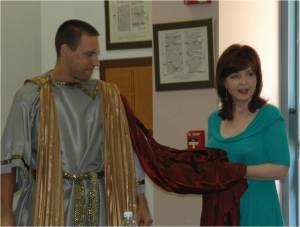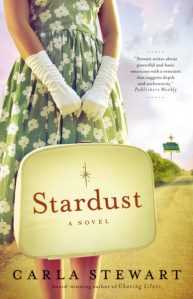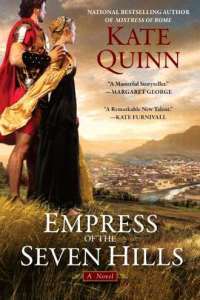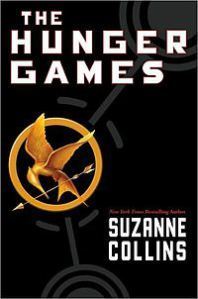Lynne Gentry's Blog, page 10
July 3, 2012
Growing Up in Mayberry
I grew up in a small Kansas farming community where everyone knew your name and your business. I guess that’s why I easily related to Andy and the cast of characters in the ANDY GRIFFITH SHOW. Those fine folks on that show made me want to be a better person.
When I learned that the iconic actor who captured the essence of a patient father, faithful friend, and small town sheriff died, it felt like I’d lost a friend.

Thank you for sharing your talents with the world, Andy Griffith.
Wondering about Andy’s path to fame, I poked around on the internet. Interestingly, Andy was an only child raised on the wrong side of the tracks. He discovered he had entertaining talents (music and drama) on a Baptist church stage. A pastor taught Andy to play the trombone and sing. That same pastor told Andy he was good, that he had talent. And Andy believed him, believed his pastor enough to try out for a school production where a teacher saw his potential and encouraged Andy to pursue music … and the rest is showbiz history.
Andy’s journey to stardom made me smile.

Here’s one of my favorites.
I’ve spent years directing church skits, Christmas pageants, and giving private acting lessons. Hundreds of kids have crossed my stage. Did the hours of work make any difference? As far as I know, none of my students are famous … yet. But I pray that when they left Ms. Lynne’s stage, they had more confidence, felt good about themselves, and knew without a doubt that someone believed them to be extremely valuable.

Or maybe this is one of my very favorites?
Here’s a thank you to that pastor and teacher who encouraged Andy Griffith. I wonder if they had any idea that the difference they made in a young boy’s life would eventually bless mine?








June 22, 2012
BULLIED
A few days ago, four 7th grade boys mounted a verbal assault against their 68-year-old bus monitor. Someone captured the sad event on a cell phone video that’s gone viral. Karen Klein’s ill-treatment has sparked international outrage. Nearly a half million dollars has been raised to send this grandmother on the vacation she deserves.
People treating other people badly for their own entertainment is not new.
I’ve spent the past few days digging into a favorite pastime of third century Romans… the gladiator games. That ancient civilization loved to pit the weak against the strong. They thought the bloodshed of innocents a great sport.

Lynne demonstrating a costume a Roman aristocrat might have worn to the games.
Watching Karen defend herself in this video reminded me of the defenseless men and women trapped in the arena as the laughing masses looked on and did nothing.
Note Karen’s body language (warning the video us tough to watch). At first, this seasoned grandmother tries to ignore the taunts, but her body language tells you even the first strike landed a painful blow. She lifts her chin, crosses her arms over her core, and turns her head away from the onslaught. As the jabs continue, wounding deeper with each thrust, being trapped between the seats becomes more unbearable. She offers quick, short, controlled verbal responses. But she’s pushed into a corner and can’t get out. She rubs her eyes, and then her face. She grabs the seat for support. Eventually, she cannot restrain the tears.
Don’t you just want to stop the bus and let some teenagers have it? I’m sure there were other kids on the bus who felt the same way I do. Maybe even the bus driver. Then why didn’t they do anything?
Edmund Burke said, “The only thing necessary for the triumph of evil is for good men to do nothing.”
The human response to evil fascinates me. My stories investigate why some people run from trouble and why others find unfathomable courage, throw back their shoulders, and stare it down.
What would you have done if you’d been on the bus with Karen?








June 5, 2012
Royal Fascination
We couldn’t join the millions of spectators braving the cold wet streets of London to honor Queen Elizabeth’s Diamond Jubilee, so we’re living vicariously by having a DOWNTON ABBEY marathon in the comfort of our living room.
Munching buttered popcorn, we sit in our middle class home and devour Julian Fellowes’ tale about an aristocratic family living on a fictional estate in Yorkshire, England during the early 1900’s. We love the tension between the three sisters. We love the interaction between the Earl and his servants. And we love watching supporting actress, Violet Crawley (Granny), steal every scene.
Maybe you don’t care to watch a 50-member ensemble cast in a royalty costume drama, but admit it … the upper crust is fascinating. I bet you have your eye on someone who has more than you right now. A movie star, a professional athlete, a Fortune 500 member, Will and Kate, or your boss who can afford that new boat you’ve wanted forever. PEOPLE MAGAZINE stays in business because we long to peek into the lives of the rich and famous.
This fascination with wealth and power is not new.
I’m researching the Roman Empire for my next book. Greed drove the Roman army into the far reaches of the frontier. People schemed to become Emperor. Even the deadly conspiracies that put an end to it all could have been ripped from today’s headlines.
Digging into the lives of royals makes for fascinating story fodder. Want to spice up your stories? Toss in some greed or envy. People won’t be able to put it down.








May 31, 2012
No Church in the Wild
Have you heard Kanye West’s lyrics in Jay-Z’s newly released music video? The haunting defiance of the bridge caught my attention:
Human beings in a mob
What’s a mob to a king?
What’s a king to a god?
What’s a god to a non-believer?
Who don’t believe in anything?
We make it out alive
All right, all right
No church in the wild
Wondering what these words meant, I clicked on the video (don’t watch unless you have a strong stomach). This disturbing work shows an oppressed people raising their fist at uniformed enforcers and fighting like folks who’ve nothing left to lose.
Humans treating other humans badly is not a new story.
The book I’m currently writing investigates some of the worst political persecution in recorded history. Back during the centuries Rome ruled the world, oppressed and mistreated Christians asked the same question: would they make it out alive?
When people believe in God, it has the potential to change them for the better. They begin to treat others well. But Christians are also human. They can act just like everyone else. And when they do, West is right. There is no church in the wild.
The stakes in our stories matter. Set the stage of your story with conflict, then run your characters through the gauntlet. Explore their strengths and weaknesses. Make the reader wonder if they’ll make it out alive.








May 21, 2012
Stop and Watch the Solar Eclipse
Yesterday evening a friend texted me and said I should check out the sun. After I finished the laundry, loaded the dishwasher, and checked my email, I dashed outside. A faint rosy glow was all that remained in the western sky. I’d been so busy keeping up with the plot of my life I missed an important reflective moment.

This isn’t the solar eclipse. I missed it, remember? But it is a sunset I caught at one of my favorite lakes.
Sometimes we drag our characters through a story at breakneck speed and never allow them or the reader an opportunity to reflect upon deeper meanings.
Dallas Morning News theater critic, Lawson Taitte, made this interesting observation of the Broadway musical, Memphis:
Memphis sizzles with light and heat … so why is it that I feel as if I have eaten something iced with synthetic shortening when the show is over? … Director Christopher Ashley tells the fairly complex story clearly, and choreographer Sergio Trujillo keeps the dancers jumpin’ and jivin’. Maybe the incessant motion, in fact, is one reason for the bad taste in my mouth. The show never really slows down enough to let a song land.
Writing a gripping story is like writing a moving musical score. Moments of frenetic movement are made more powerful by the tiny little rest. What does the rest look like in storytelling?
*Have a character make a cup of coffee then hold the steaming mug in their hands, breathing in the smell, as they listen to the tick of their grandmother’s kitchen clock.
*Sit a character on the stoop. Allow them to take in the trash and broken windows of what was once a beautiful neighborhood.
*Take your character outside and let them gaze at the stars and feel their own insignificance compared to such splendor and immensity.

This is the life!
I had the pleasure of spending the day at the lake with this little fellow. He went non-stop, exploring every rock, tree, and bug. Late in the afternoon he asked for a snack. He raced to the bank, plopped down in his little lawn chair, and sat there for thirty minutes…resting. Don’t you wonder what he was thinking? Did he feel as small as he looks? Did he dream of swimming to the other side of the lake or contemplate conquering the world? Even three-year-olds with boundless energy have to rest now and then. I think it is in the resting, contemplating, and observing that we learn the most.
Every once in awhile, let your characters slow down and land a song. Let them learn in the quiet then send them hurtling into the fray once again. And NEVER let them miss a chance to soak in a solar eclipse.








May 14, 2012
Characters that Pop
I asked good friend and author Carla Stewart to drop by and discuss her favorite character in her new release, STARDUST. Carla’s writing reflects her passion for times gone by. A child of the fifties and sixties, she recalls it as a glorious time when the summers were lazy, colors were brighter, and music filled her heart. Carla’s desire is to take readers back to the times when they knew they were loved, to that warm, familiar place in the heart called “home.” This gifted writer does an excellent job creating characters that leap from the page to dance upon the stage of your mind long after you close the book.
Tell us why you picked Ludi Harper and what you did to layer this character for the reader, Carla.

The Unflappable Carla Stewart
Thanks, Lynne, for having me here on Stage Write. So blessed.
They’re ALL my favorites, but if I had to pick one, it would be the unassuming Ludi Harper, a resident of the isolated, impoverished community of Zion. She was the maid at the Stardust before Georgia Payton inherited the rundown cottages. One day she appears, her girth wide enough to nearly fill a doorway, and asks what she can do to help. She offers her earthy wisdom, a strong back, and her bosom to cry in.
Here’s how Georgia first sees Ludi:
She lumbered after me into the office, her hands worrying the apron she wore, an apron
that carried the remnants of a half dozen spatters of what looked like tomatoes, maybe a bit of gravy. Her hair, though, was pulled into a neat bun at the back of her head, and she smelled of wood smoke and earth and something faint, but sweet. Her feet were stuffed into men’s black leather shoes, the laces missing which allowed her beefy flesh room to breathe at the tops. 
When Ludi plants her hands on her hips, she commands attention, but when she’s fretting, she worries her apron with work worn hands. Ludi’s speech is that of the abject poverty and culture of Zion, and when she was on the scene, I only had to close my eyes and let her direct the words onto the page.
Each day, Georgia listens for “Swing Low, Sweet Chariot” as Ludi’s voice, like warm honey, wafts across the meadow signaling her arrival. She’s the constant that Georgia needs. The voice of reason. The sweet whisper of God.
We all need a Ludi in our lives. I know I do.

Buy STARDUST now. You won’t be disappointed.








May 1, 2012
Setting as Character
About five years ago, I got the chance to go to New York to see my first Broadway show. I bought tickets to see 42nd Street. As the orchestra tuned, I fidgeted in my seat. The house lights went down. The red curtain slowly rose to the sound of 40 pairs of tap-dancing feet. I thought my heart would leap out of my chest. For the next two hours, my eyes were riveted on the stage. 
This Broadway musical, based on Bradford Ropes’ novel, tells the story of mounting a successful stage extravaganza at the height of the Great Depression. What better place to set a story about a stage production than on a stage? In essence, the stage became a character in the cast, a character that shaped the whole story.

Get Kate Quinn's new book today.
In Kate Quinn’s new book, Empress of the Seven Hills, she has a rough and tumble hero, Vix. I love how she uses the setting of the ancient Roman world as a character. First, she takes her country boy Vix to the city. The city kicks Vix around like a character with an ax to grind. But Kate doesn’t stop there with Vix’s character development. She changes settings and takes Vix to the far reaches of the Empire, the rough and unsettled parts of the world, and lets the hardships rough him up even more. Now, the rustic setting is a character as well.
How can you use setting as a character in your WIP?








April 12, 2012
7 Authors Post a Teaser Test
Today, Kellie Coates Gilbert, author of MOTHER OF PEARL, Abingdon Press, September 2012, invited me to participate in a Blog Teaser. She said I had to do this:
1. Go to the 77th page of my book or current WIP.
2. Count down 7 lines.
3. Copy the 7 sentences that follow, and post them.
4. Tag 7 other authors.
So, here goes with an excerpt teaser from REINVENTING LEONA, Tyndale 2011:

BUY NOW at www.amazon.com
A familiar ache throttled Leona’s heart as she watched her daughter put her head down against the wind and set off for the limo in the far corner of the deserted parking lot.
The Harpers had been the first ones to arrive at the church building and the last ones to leave for so many years that the sight of a lone car seemed natural. Leona couldn’t have identified the kind of car anyone drove, except for Howard and Maxine Davis. And she only knew their car because every Sunday, the Cadillac dealer parked his current demo model right in front of the glass foyer doors in the spot marked Visitor Parking Only.
It galled J.D. that the chairman of the elder board insisted that having the visitor spot filled with such an impressive ride would entice those of considerable means inside the church doors.
On the sin of pride, the pastor was not one to turn the other cheek. So J.D. had taken to parking the Harpers’ rusted-out minivan in the very next slot, where he had Cotton erect a homemade sign that read Pastor Parking Only, even though they lived right across the parking lot and had no need to drive the van to church.
There you have it … an excerpt from REINVENTING LEONA. Now I’m tagging some 7 other great authors you won’t want to miss. Check out their stories and enjoy.








March 27, 2012
HUNGER GAMES … Book or Movie?
 Figures are in. HUNGER GAMES leapt from the page to the stage and grossed $19.7 million at the midnight premiere. Suzanne Collin's story of the spunky underdog who takes on the elite class stirs opinions. One of the biggest debates is: which is better … book or movie?
Figures are in. HUNGER GAMES leapt from the page to the stage and grossed $19.7 million at the midnight premiere. Suzanne Collin's story of the spunky underdog who takes on the elite class stirs opinions. One of the biggest debates is: which is better … book or movie?
I posted this question on Facebook and the responses are varied:
*Movie was good, but book was better. So many layers of meaning missed in movie.
*Really enjoyed the movie, but loved the book more! Working on 2nd book.
*The dress on fire was awesome!
*You have to accept them each for what they are. Book was better, IMO, but the movie did what it was supposed to do.
What was it about this transition from page to stage that caused people to react so strongly? I think it is because those of us who read the book first had already formed very strong visual impressions in our minds. We fashioned our own Katniss. We assigned physical characteristics to Peeta based on his kindness. And we formed mental images of the settings: District 12, the Capitol City, and the arena.
What did I learn? When an author manipulates two-dimensional words until they evoke three-dimensional characters and worlds…that's powerful stuff. Even if you don't read science fiction, if you're a writer you should study this book for craft.
I think the movie makers had their work cut out for them on this one. For the most part, they did an excellent job of capturing bits and pieces of the imaginary world that I'd already constructed. Hopefully, they'll catch a piece or two of yours.
May the odds be in your favor as you strive to write such compelling characters that readers will cast them in their own minds.








March 10, 2012
3 Lessons from the HUNGER GAMES
I think March Madness should include the much anticipated movie HUNGER GAMES.  Author Suzanne Collins has to be beside herself with excitement to see the words she penned take the stage.
Author Suzanne Collins has to be beside herself with excitement to see the words she penned take the stage.
But Collins did such a spectacular job of writing, I don't need to see the movie to see the characters in my head. How did she do it? Well, besides crafting an incredible story, here are three points to consider:
1. Described things specifically. On the first page, Buttercup the cat is described like this: The world's ugliest cat. Mashed-in nose, half of one ear missing, eyes the color of rotting squash. She could have stopped her description at "world's ugliest cat" but taking the time to give us three unusual descriptive phrases makes Buttercup leap off the page in 3-dimensional power.
2. Dressed her characters. Page 4: Katniss swings her legs off the bed and slides into her hunting boots. Supple leather that has molded to her feet. She pulls on trousers, a shirt, tucks her long dark braid up into a cap, and grabs a forage bag. Collins could have just said Katniss dressed for a hunt. But by describing her costume, especially her supple leather boots, we immediately relate to how it feels to have shoes that fit us well. Understanding that feeling makes it possible for us to feel some of the same things Katniss feels and that makes her real in our heads.
3. Detailed body language. Page 5: Even so, I always take a moment to listen carefully for the hum that means the fence is live. Right now, it's silent as a stone. … I flatten out on my belly and slide under a two-foot stretch that has been loose for years. You can almost smell the earth as Katniss slips outside of the District's boundaries. Descriptive body language awakens our senses and makes it possible for us to see, hear, taste, touch, and smell things that aren't even written down.
Oh, if only I could grow up to write like this!
Check out this interesting article:











